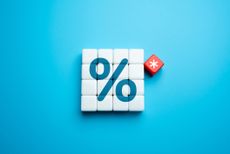Investment Strategy
The latest news, updates and opinions on Investment Strategy from the expert team here at MoneyWeek
Explore Investment Strategy
-

What is value investing?
Value investing covers a broad range of bases, but the approach hinges on identifying companies that are worth more than their price suggests.
By Dan McEvoy Last updated
-

Why it might be time to switch your pension strategy
Your pension strategy may need tweaking – with many pension experts now arguing that 75 should be the pivotal age in your retirement planning.
By David Prosser Published
-

An investing style that’s out of fashion
Star fund managers such as Terry Smith and Nick Train are at the mercy of wider market trends, says Cris Sholto Heaton
By Cris Sholto Heaton Published
-

The best UK investment platforms for beginners
MoneyWeek has selected its pick of the best UK investment platforms for beginners looking to step into the investing world for the first time
By Moira O'Neill Last updated
-

How to add cryptocurrency to your portfolio
A new listing shows how bitcoin might add value to a portfolio if cryptocurrency keeps gaining acceptance, says Cris Sholto Heaton
By Cris Sholto Heaton Published
-

Flat fees vs percentage fees - are you paying too much?
We investigate whether it’s better to choose an investment platform with flat fees, or whether percentage charges could work out cheaper.
By Marc Shoffman Last updated
-

Invest in forestry: a tax-efficient way to grow your wealth
Record sums are pouring into forestry funds. It makes sense to join the rush, says David Prosser
By David Prosser Published
-

The MoneyWeek investment trust portfolio – early 2026 update
The MoneyWeek investment trust portfolio had a solid year in 2025. Scottish Mortgage and Law Debenture were the star performers, with very different strategies
By Rupert Hargreaves Published
-

Pundits had a bad 2025 – here's what it means for investors
The pundits came in for many shocks in 2025, says Max King. Here is what they should learn from them
By Max King Published
